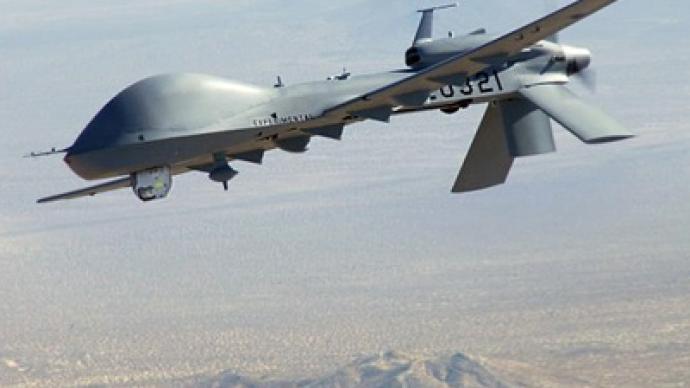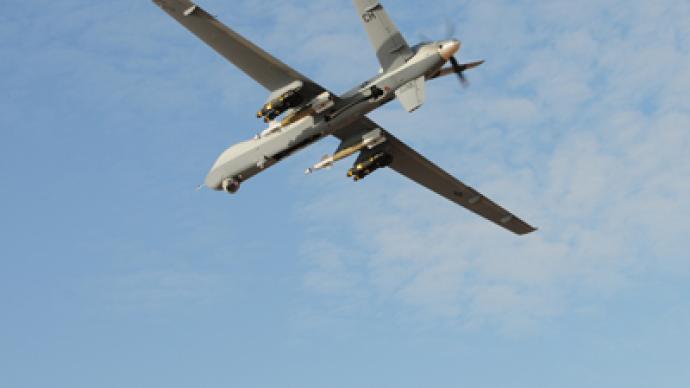Despite continuing pleads to abolish drone strikes in Pakistan, the United States used an unmanned aircraft to target a girls’ school over the weekend, executing four suspected militants in the strike.
The latest report comes a month after the United States last launched a drone strike in Pakistan, but also nearly four years since the parliament there first urged the US to end the program. Only one month ago, the Pakistani parliament voted unanimously on a new set of rules that establish how it will continue to govern its relationship with the United States. Both countries have been at odds since the US military began an operation in Pakistan waged against al-Qaeda militants following the September 11, 2001 terrorist attacks, but relations have worn especially thin since the clandestine execution of Osama bin Laden one year ago this week in Abbottabad. Although the US has scaled back their drone strikes in recent weeks, the unannounced attack over the weekend is being viewed by some as a refusal on America’s part to pull the plug on one of its most heated and long-ending operations. Responding to the strike over the weekend, Pakistan’s Foreign Ministry released a statement condemning the drone strike as a “total contravention of international law and established norms of interstate relations.”“The government of Pakistan has consistently maintained that drone attacks are violative of its territorial integrity and sovereignty,” continues the memo.Commenting to the Washington Post, a Pakistani intelligence official speaking on condition of anonymity explains that some may be quick to think of the latest strike as an example of America’s unwillingness to cooperate with foreign nations, even its allies.“It’s a message that things are going to continue as usual irrespective of what we say,” says the official.Such sentiments have only become more widespread as America refuses to forego Pakistan’s pleas to not just abandon the drone strikes, but to at least say they are sorry. Authorities overseas have insisted that America offer an “unconditional apology” for killing Pakistani troops during a November air strike, and although Washington has expressed regret, they have been unwilling to formally say they are sorry.During an April 12 meeting held by the Pakistani Parliament, authorities laid on “terms of engagement” that established that the CIA would have to end their drone strikes immediately. Citing this weekend’s episode, a Pakistani government official also speaking under condition of anonymity adds to the Post that America’s reluctance to abide by the rules established overseas may only worsen their relationship.“When a duly elected democratic Parliament says three times not to do this, and the U.S. keeps doing it, it undermines democracy,” says the source. “These drone strikes may kill terrorists, but the net loser is freedom and democracy.” Responding to the news of the strike, Pakistani Prime Minister Yousuf Raza Gilani was quoted by the Associated Press as saying that he feared an immediate repercussion carried out overseas could threaten what was left of his country’s chances at reestablishing a healthy relationship with the US.“So, when we plan a strategy (with the U.S.), all these aspects would be discussed,” the prime minister said.Sheik Waqas Akram, a member Prime Minister Gilani’s cabinet, appears not as understanding, though.“The CIA could have opted not to go for a drone strike at such a crucial time, when senior U.S. officials are trying hard to iron out differences with Pakistan,” he tells the Post. “It shows that it has no regard for the Pakistani Parliament’s resolution.”


